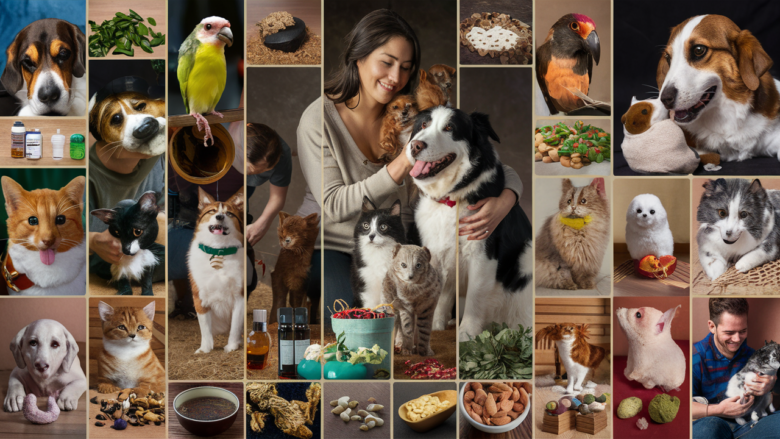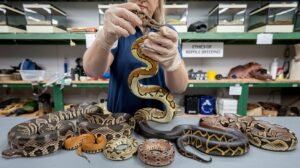In today’s world, pet owners are increasingly seeking holistic solutions for their companions’ health. This article delves into the significance of pet wellness programs, the principles of holistic pet health, the growing trend of integrative veterinary practices, and essential wellness checks tailored for exotic animals, offering a comprehensive understanding of modern pet care.
Understanding Pet Wellness Programs
Pet wellness programs focus on the comprehensive health of pets, including regular assessments, vaccinations, nutritional guidance, and exercise plans, fostering preventive care. These elements are crucial in enhancing a pet’s health span and quality of life, evident in practices like Banfield Pet Hospital’s proactive health checks and PetSmart’s veterinary partnerships. By prioritizing early detection and preventative measures, pets not only avoid illness but also enjoy longer, happier lives.
The Essence of Holistic Pet Health
Holistic pet health emphasizes a complete approach, addressing physical, emotional, and environmental well-being. A balanced diet, mental stimulation, and natural therapies play critical roles. Treatments like acupuncture, herbal remedies, and massage therapy effectively complement traditional care.
For instance, a dog suffering from chronic pain experienced significant relief through acupuncture, enhancing mobility and overall quality of life. Meanwhile, another case involved a cat thriving on a specially designed herbal regimen that boosted immunity and vitality, showcasing the potential of holistic approaches in veterinary care.
Integrative Veterinary Practices: Bridging Traditional and Alternative Approaches
Integrative veterinary practices synthesize conventional and alternative therapies, enhancing pet care by addressing varied health dimensions. Their rising popularity reflects a growing awareness among veterinarians and owners of the benefits of personalized treatment plans that combine clinical and holistic approaches. Veterinarians play a crucial role in implementing integrative care, ensuring that tailored strategies cater to each pet’s unique health needs and preferences. Success stories abound, such as pets with chronic pain experiencing significant relief through a combination of traditional medications and acupuncture, illustrating the profound impact of integrative veterinary medicine on pet health outcomes.
Wellness Checks: Essential for All Pets, Including Exotics
Regular wellness checks are crucial for all pets, especially exotic species requiring specialized examinations. These checks include assessing nutritional needs, environment, and overall health while identifying potential behavioral issues. Exotic pets thrive on routine.
Veterinarians face unique challenges—comprehending nuanced species-specific health indicators is essential. Responsibilities encompass habitat assessments, recognizing stressors, and monitoring conditions like metabolic bone disease in reptiles or feather plucking in birds. Specialized knowledge aids effective interventions.
Pet owners should prepare by providing detailed histories of their pet’s behavior, diet, and habitat. Creating a stress-free environment during visits, along with necessary documentation, enhances the effectiveness of the wellness check and contributes to positive health outcomes in exotic pets.
The Future of Pet Health: A Holistic and Integrative Path
As the landscape of pet healthcare advances, the future lies in holistic and integrative approaches. Emerging technologies may enable more personalized care, combining traditional methods with alternative therapies. Research is expanding into acupuncture and herbal treatments, gaining traction among pet owners.
The integration of telemedicine may also enhance accessibility, particularly for exotic pet owners needing specialized care. Increasing awareness of holistic health is likely to encourage veterinarians to adopt a more comprehensive approach, leading to optimal health outcomes.
An emphasis on nutrition, behavior, and mental well-being will redefine wellness programs, ensuring pets receive tailored support throughout their lives. The growing collaboration between conventional and alternative practices will significantly enrich the veterinary field, benefiting pets of all species.
Conclusions
This exploration of pet wellness programs, holistic health, and integrative veterinary practices underscores the importance of a comprehensive approach to pet care. By combining traditional and alternative methods, and ensuring wellness checks for all pets, especially exotic ones, we can foster healthier and happier lives for our beloved animals.



